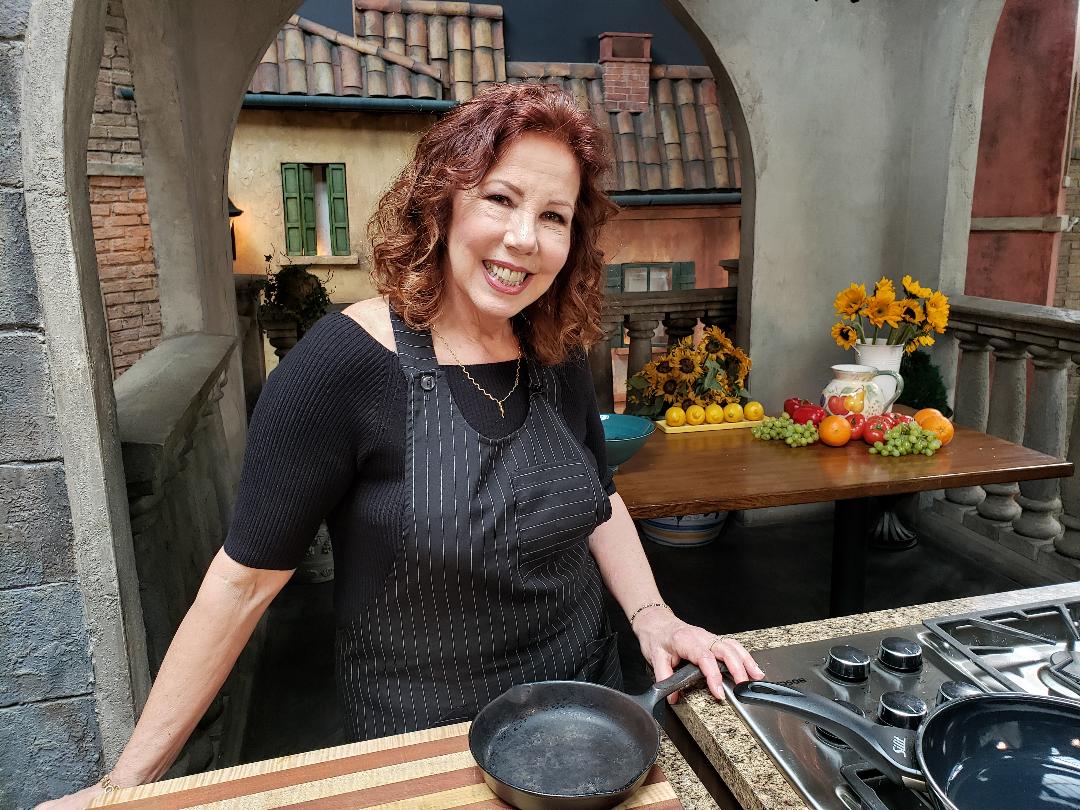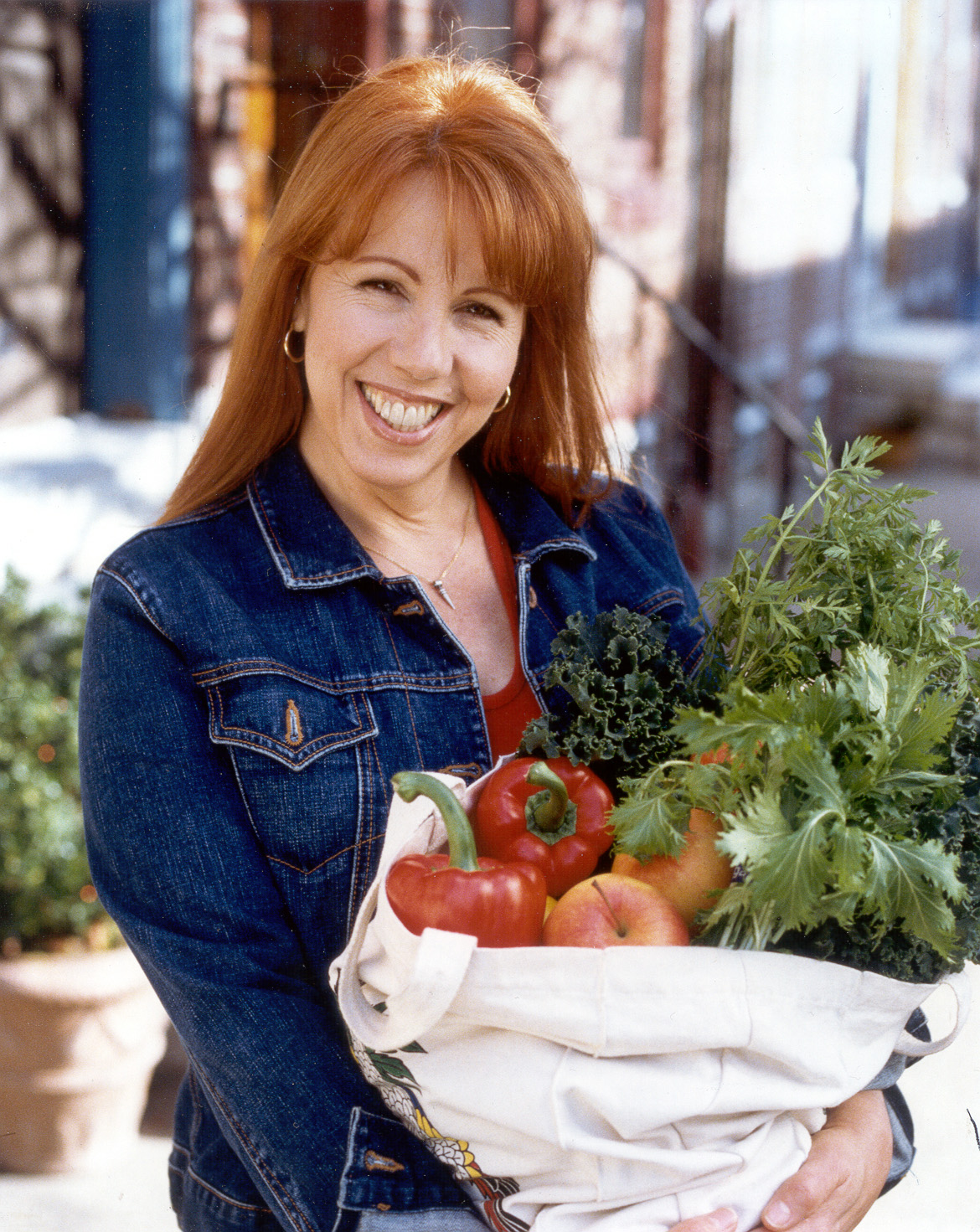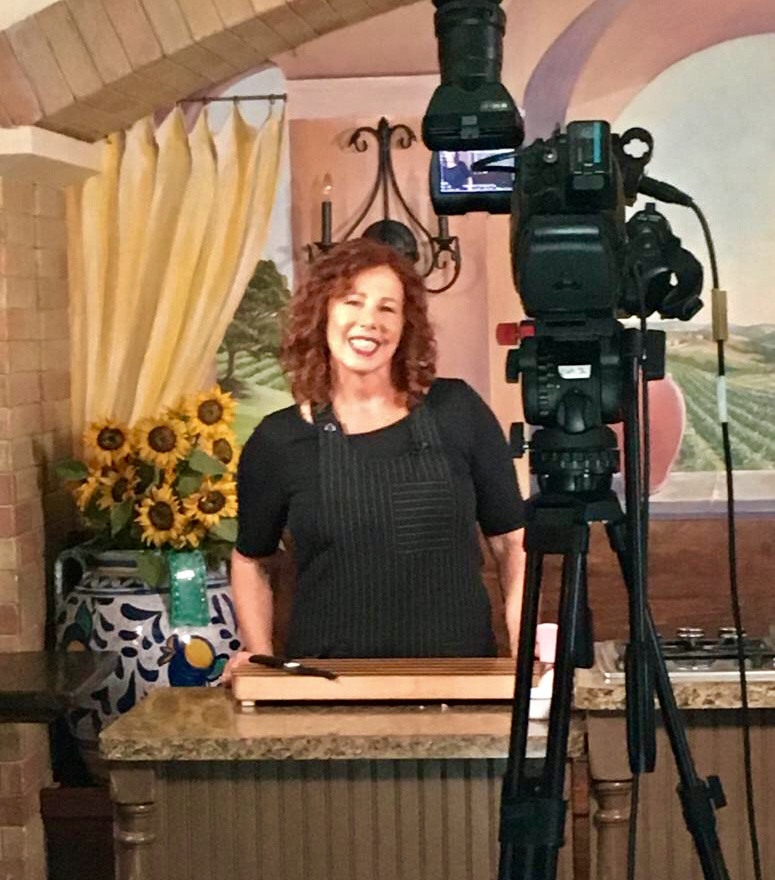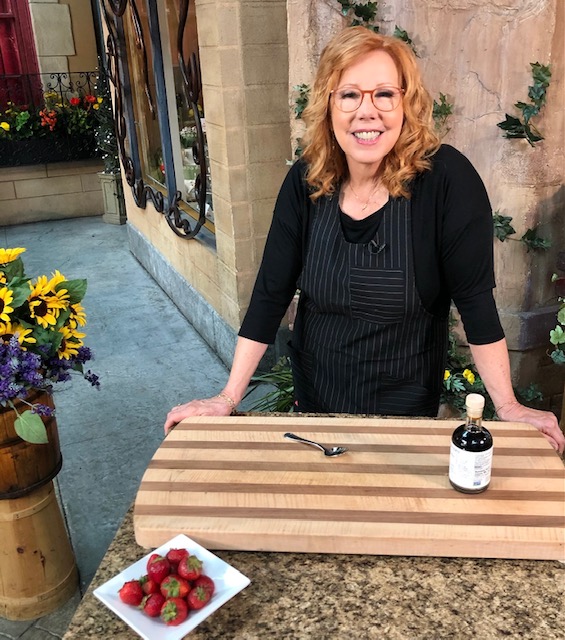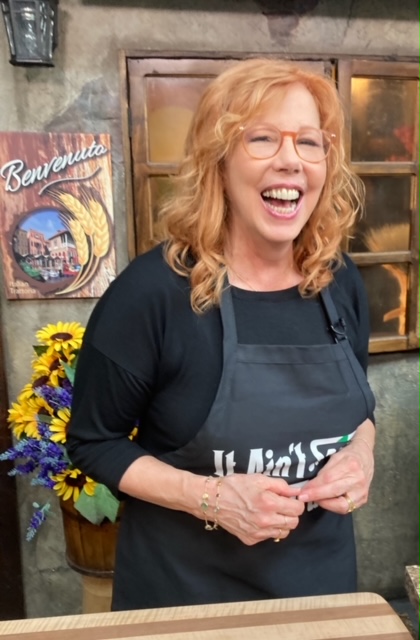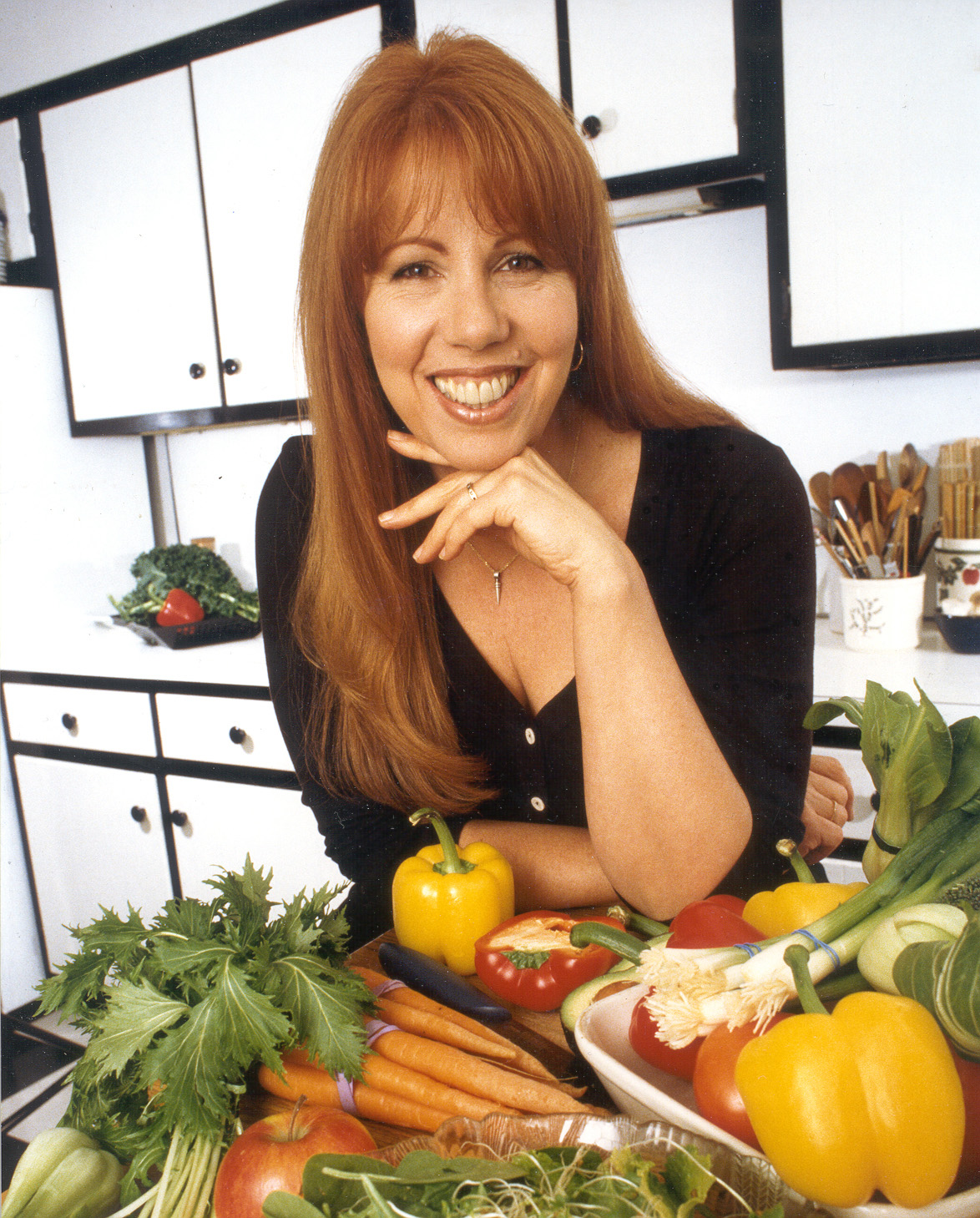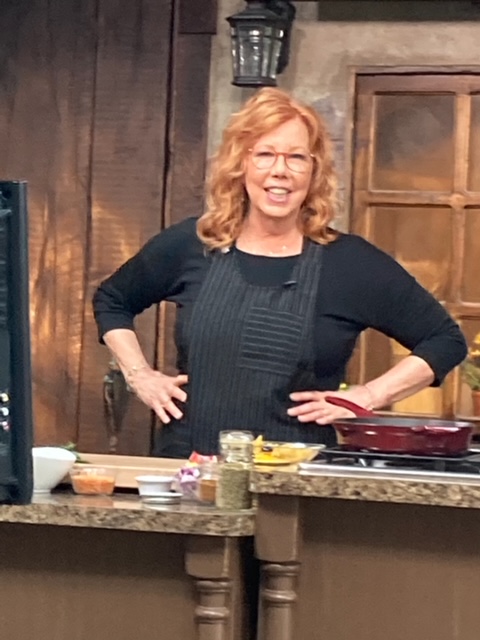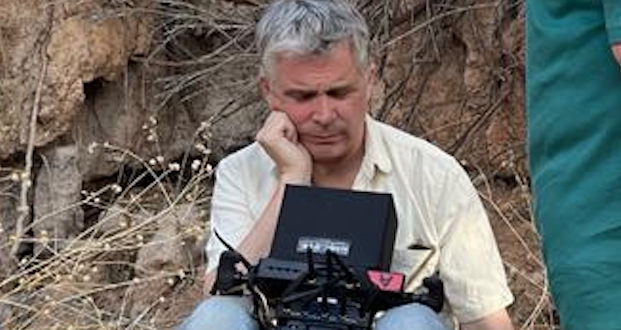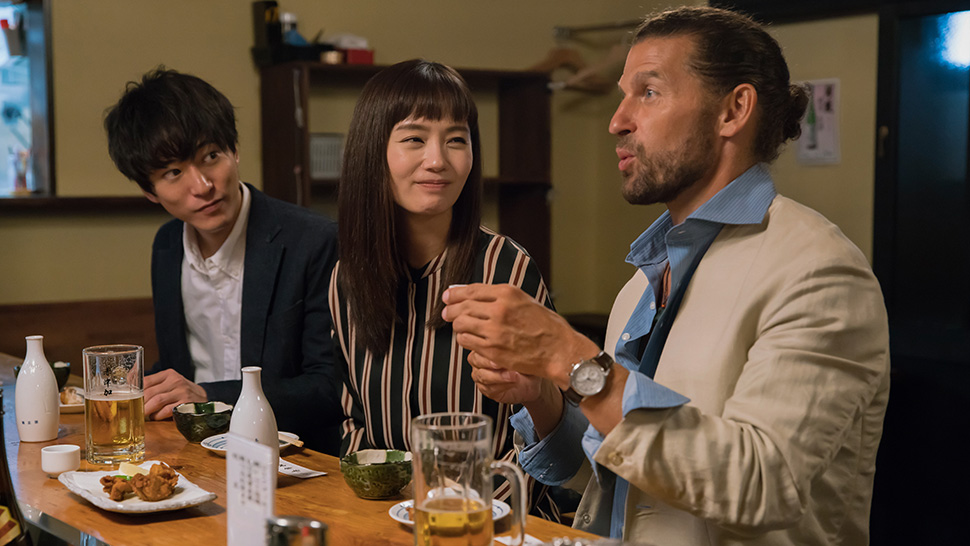“Christina Cooks” host Christina Pirello is the only macrobiotic vegan chef on PBS who’s been teaching how to cook healthier because it’s what helped her go into remission from cancer. Talking to KLCS, from Italy, she shares her journey to living life as a macrobiotic vegan chef with nutrition and acupuncture training, how she ended up on PBS with her Emmy award-winning show now on Create TV and getting to meet Julia Child who said, “I want to meet the girl who doesn’t cook with butter.”
Christina, what are you doing in Italy?
One of things that we do outside of the TV show is we host boutique groups in mostly Italy and we just did a group on the Amalfi Coast of 12 guests and now we’re waiting for 20 guests to go to Tuscany for 10 days.
How did that come about?
Our travel business was born 30 years ago on a beach in St. John; I turned to my husband and said, “As a vegan, there’s nothing to eat, except overcooked pasta with broccoli.” He said, “Hey, let’s start a travel business that offers healthy options for people, as well as conventional options.” And I thought, “That’ll sell – not at all.” We promoted our first trip in a little newsletter that we printed back then and it sold out in two months and we’ve been doing them every since. The only interruptions were the year of September 11th and the pandemic.”
Your show is based at a cooking school; what is the aim of your show?
We shoot it at a cooking school where I teach. The mission of the show is the mission of everything that we do, which is to help people have a different and better relationship with their food and to make as healthy a choice as their budget allows them to make. While the show is vegan, we are not preachy vegans. We are usually not vegan enough for most vegans because I don’t really promote the mission about being vegan. It’s about making the healthiest choice that you can for you and your family based on your budget. Food for me, it’s about helping people understand the impact of food on their day-to-day wellness.
You have an interesting story, with a mother who was health conscious, reading Frances Moore Lappé, and you got cancer within six months of your mom’s death, but you’ve been in remission since then.
My mother was diagnosed with colon cancer and the primary source was bone, but they never found that till toward the end of her life. While she understood all this health-related stuff like Frances Moore Lappé and she worked out to Jack LaLanne and she read all the Rodale books, she never actually did any of it. She lived on coffee, chocolate and usually a cigarette. And we had to eat all the vegetables that we grew in the garden and the figs from the tree in the backyard. And I was always cooking as a kid and when I left home at 18 to go to college, I was like, “I’m done with this. I’m not going to be chained to a kitchen stove,” so I adopted the single woman junk food diet, vegetarian. It turns out Dr. Pepper is vegan. And then I became a pastry chef and did that and lived on sugar. About six months after my mother died, I kept thinking, “I still can’t be grieving to be this exhausted.” Went to the doctor, was diagnosed with leukemia, told I had six to nine months and thought, “I’m not doing this. I’m not doing what she just did.” And they offered me no real hope. They were like, “Well, we can extend your life, but there’s no cure for you.” My plan was to move back to Italy where I had lived, but then I met the man who changed the course of my life and I married him, Robert Pirello. He introduced me to macrobiotics and healthy veganism and in 14 months I was cancer-free and have stayed that way since 1984. There’s many, many people like me, I’m not so unique.
Your husband and co-executive producer?
Yeah, my business partner, manager, executive producer. We live together, work together and cook together.
You read Michio Kushi’s book about macrobiotics; my mother got cancer too and I bought that book and I was trying to get her to change.
Oh my God, I tried to get my mother to change too when she was sick and I discovered macrobiotics, so I got a book and I cooked a dish for her and she said, “I love you honey, but death would be better. Did you make chocolate pudding?” I was like, “Yeah, I did.” (laughs) So then I learned how to cook ,obviously, and here we are. But as a chef, it was easy for me to adapt and figure out how to cook the food, but I had no idea how to balance meal until macrobiotics, in terms of being vegan.
You have a Master’s degree in food science and nutrition; where is it from?
Drexel University. After I got better, I decided I need to understand what happened here, because it couldn’t be just a divine intervention. Although I’m sure there was some power greater than me guiding me along. I decided to study acupuncture, Chinese medicine and then get my master’s in nutrition because I wanted to have credibility when I stood in front of a group and not just sound like I understood Chinese medicine but not real nutrition, so I wanted to have both of those tools at my fingertips.
You have a soba noodle dish that I like, you throw everything in, and some desserts that are healthy. Do you have a favorite dish?
I have so many, it’s so hard to pick one. I’m in Italy so I have to say pasta (laughs). One of my favorite dishes to make is pasta with basil pesto – basil, pine nuts, white miso in place of cheese, garlic and olive oil. And it tastes like there’s Parmigiano because I use white miso and it’s creamy and rich and summery and I top it with diced cherry tomatoes and it’s a wonderful dish.
Is miso your go-to substitute for cheese always?
Yeah, I don’t do nutritional yeast or any of the vegan cheeses. I’m not against any of the vegan cheeses; I think that what some people are doing out there with it is brilliant, it’s just that I haven’t eaten cheese in so long, I don’t think of it. I don’t miss it. It’s not something I think about anymore. I haven’t had cheese in like 30 years. So whenever somebody says “cheese” to me, I think “Yeah, I have to create that cheese flavor,” but it’s not something that occurs to me.
Miso is also more macrobiotic.
More macrobiotic, it’s fermented, it’s good for digestion, so it not only brings the cheesy flavor, it gives me the benefit of digestion and fermentation. Which is great, so it’s like having your pasta and eating it too.
What was your path to being a chef and what made you originally want to cook on TV?
I was a pastry chef, when I was young I wanted to be a chef for as long as I could remember. I vacillated between chef and artist and I ended up doing both. It seems to me a lot of chefs do something artistic at some point, so I have a Bachelor’s and Master’s of Fine Arts and I worked in fine arts for a while, but it was easier to support that habit with cooking. So, I ended up in the kitchen at a time when women weren’t really welcomed in the kitchen. We kind of fought for everything. I always joke that I spent my early years in the kitchen with somebody’s hand on my butt while I was working, because there was no [Human Resources]. Getting sick, I walked away from pastry because I learned all this stuff about sugar and thought, “I can’t do this anymore,” so I studied and then I started teaching cooking in my kitchen talking about healthy cooking. My husband used to come in and sit in the back of the room and everybody would be laughing and having a good time and the food was great and I’m funny, I’m half Irish, I guess I tell a good story and he said, “You should do this on TV.” I thought, “Sure, of course. You make it happen and I’ll do it.” Thinking “Never, ever, ever.” It’s not one ambition that I had, to be on TV or to be well known at all. So, it took him two years, he raised the funding as you do for public television. In the meantime, we talked to Discovery at the time and they said as long as I would throw-in chicken now and then, it would be great and I walked away from that. When we went to public television, they said, “As long as your content is educational” and all the other parameters, we were like, “We could do that.” [We] raised our first budget and launched the first shows in 1998. I think people loved the show because we were so weird in the beginning. Nobody was cooking with tofu on TV and miso and seaweed and talking about how food affects your health. Sadly there is still nobody who really does exactly what I do. In a way, thank God, but I wish there were more. So the path to TV was not a path that I planned on taking. I do it; I’m a teacher, it’s the biggest classroom in the world – TV, so I do it. I find it enjoyable-ish. I’m very nervous when we shoot, so I find it enjoyable-ish.
What’s the most frequent question you get? What’s your answer to that?
The most frequent question I get is the same one that vegans have gotten for a thousand years it seems – where do I get my protein? There’s protein in every single food you eat, except some fruit. Cows eat grass. We get plenty of protein in whole grains, beans and vegetables. And – do I worry about my bones and calcium? No I don’t, I get plenty of calcium from leafy greens and I don’t lose any calcium because I don’t eat any dairy. The third one is, “What do you eat if you don’t eat meat, chicken and fish?” I eat everything else. (laughs)
For protein then, do you eat a lot of beans?
Yeah, beans, tofu and tempeh, but mostly beans. Lentils, cannellini beans, split pea and I’m obsessed with lentils in any form. We eat a lot of beans!
I wonder about the estrogen content because it’s higher in beans. Have you ever done your estrogen levels? But I guess as a woman, as you get older, estrogen is helpful.
It is and I had my menstrual cycle until I was 61 and I’ve eaten the way I’ve eaten since I’m 26 years old. My period came every 28 days, went away after five, and when my period ended, it just ended. I never had a hot flash, I never a sleepless night, I never had any of the symptoms that people struggle with and I think it’s because of the way I eat, in fact I’m sure it’s because of the way I eat. But menopause was not something that was ever an issue for me. I attribute it to my diet, but I also attribute it partly to genetics because I remember talking to my grandmother from Italy and asking her about it and she said, “My period just stopped when I was 60 and it just stopped.” She never had a hot flash. And my mother died far too young to know. I think a lot of it is diet, I think when women eat a lot of animal food, we struggle more with menopausal symptoms because there’s a lot of estrogen in the dairy and meat that we eat, even if it’s organic.
It seems there’s more estrogen than progesterone in food.
Yeah. And as we get older as women, that’s not a bad thing.
What do you do when you’re not on the show teaching us to cook?
We have a travel business, I also teach at a culinary university called Walnut Hill College. I write. I’ve written nine books and a new one is coming out as the companion book to this new series that starts in January 2022. Before the pandemic, we did a million events, now I do a lot of Zoom events. We stay really busy and I work out a lot at the gym, and I cook a lot. And I’m always working on recipes.
You can tell you really enjoy your job teaching people how to cook. What keeps you going?
I do. The people that come to cooking classes keep me going. They’re interested, they’re engaged, they’re curious and I find that really inspiring, that there’s so many people that want to know how to be healthier.
So far everyone has had a Julia Child story, whether she influenced, or if they met her. Do you have a Julia story?
I met her. When I was brand new to public television, I was at a publishing event with Penguin. My publisher from Penguin was there and he said, “Is there anyone you want to meet here?” I said, “Uh, yeah – Julia Child” and as I said that, she walked by with her assistant and she said to her assistant, “Don’t forget, I want to meet that girl who doesn’t cook with butter.” And I thought, “Oh, oh, that’s me!” So, I got to meet her and her assistant said, “You have 10 minutes,” I was like, “Okay!” Two hours later, we’re still talking about butter. And Julia was 87 and said, “Should I give up butter.” I said, “Nah, you’re doing fine.” (laughs)
Well, she lived to 91.
Yeah. She didn’t need my help at all. But she was really lovely and curious and I was so starstruck that for the first 10 minutes of the conversation I couldn’t speak.
Do ever just pinch yourself you get to do this for a living and follow in her footsteps of educating people about cooking on TV?
Oh everyday. Everyday. I struggle with it, because I’m not really comfortable in the notoriety column of my life. But I have to say I get to do something that less than 1 percent of the population gets to do, which is completely live my passion and I’m grateful every minute of every day for it.
A lot of chefs can’t be back with new seasons because it’s hard to find funding.
Yeah, it’s a struggle every single day. Every single season, you almost feel your shoulder sag, “Here we go, it’s time to go out and raise the funding again.” We’ve been lucky in that we have a couple of really loyal sponsors, like Susan Specialties, which is a natural sweetener and some private funders who stay with us year after year. And honestly, it was Eden Foods that got us off the ground, back in the beginning. Without Michael Potter and Eden Foods, our show wouldn’t have seen the light of day.
If you’re in L.A., do you have any favorite places to dine or food shop?
I haven’t been to L.A. in years. The last time I shopped for food in L.A. Mrs. Gooch’s still existed, which was bought out by Whole Foods. They were great and that’s how long it’s been since I was in LA. I love L.A., I just haven’t had the occasion to get out there.
In Italy right now, or in general in your travel classes, do you cook or do you guys visit with chefs?
We do a little of both. We rent villas where we provide two meals a day for the clients – breakfast and either lunch or dinner and while they’re out touring we find a restaurant that’s healthy-friendly, so vegans can be happy there, non-vegans can be happy there. So we get to cook and I get to cook with the ingredients of Italy that are amazing and my clients also get to experience authentic Italian cuisine in a restaurant as well. There’s wine tastings, olive oil tastings.
Why just Italy and not France for example?
We’ve done Spain, Croatia, Israel and we’re looking at places like France, but honestly, our hearts are here. Right now I’m in Rome and headed to Tuscany tomorrow.
Tune-in to Christina Cooks, Satrudays at 3:00 PM on KLCS. Keep up with Christina Pirello on her social media; follow her on Twitter (@christinacooks), Instagram (@christinacooks), or visit her website at: christinacooks.com

